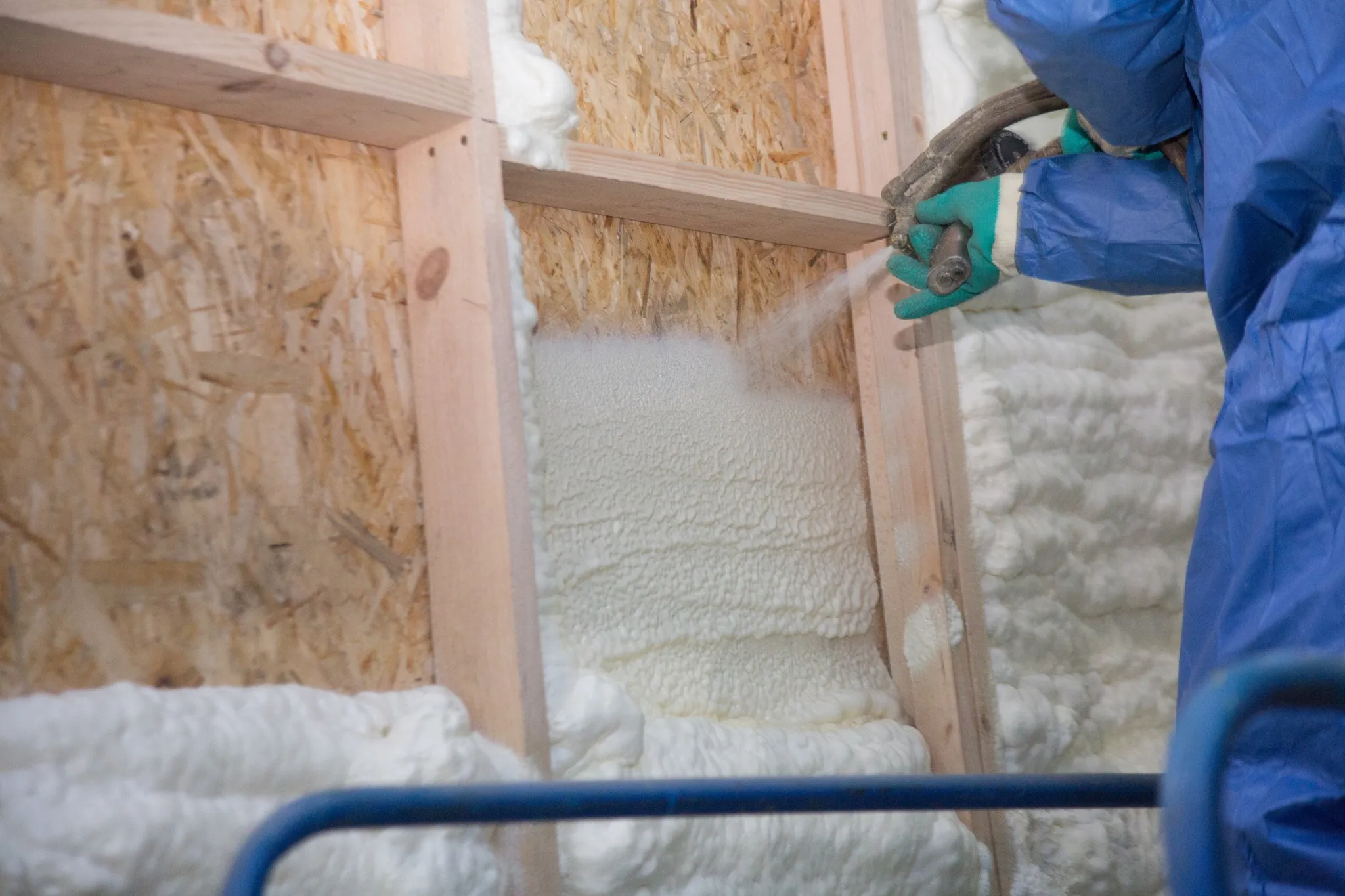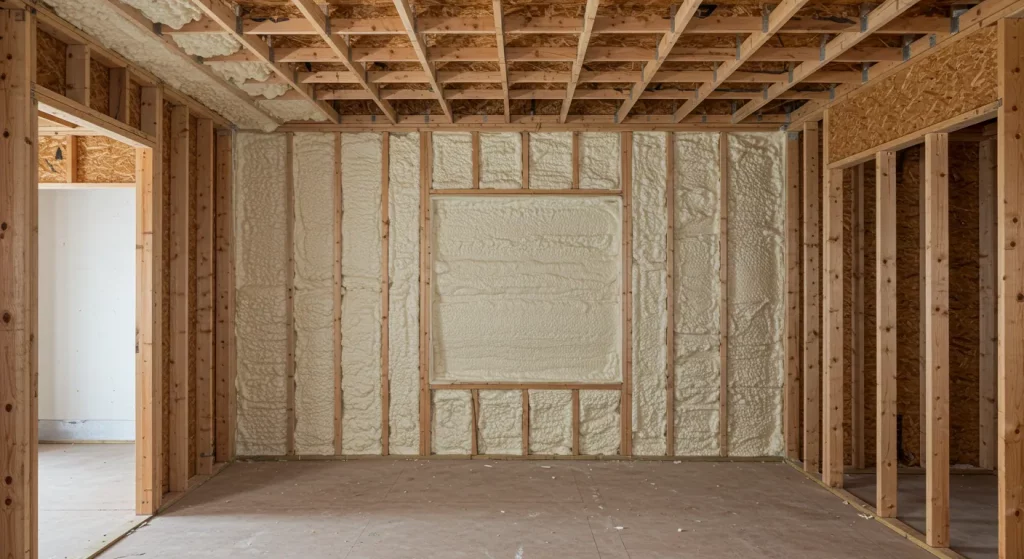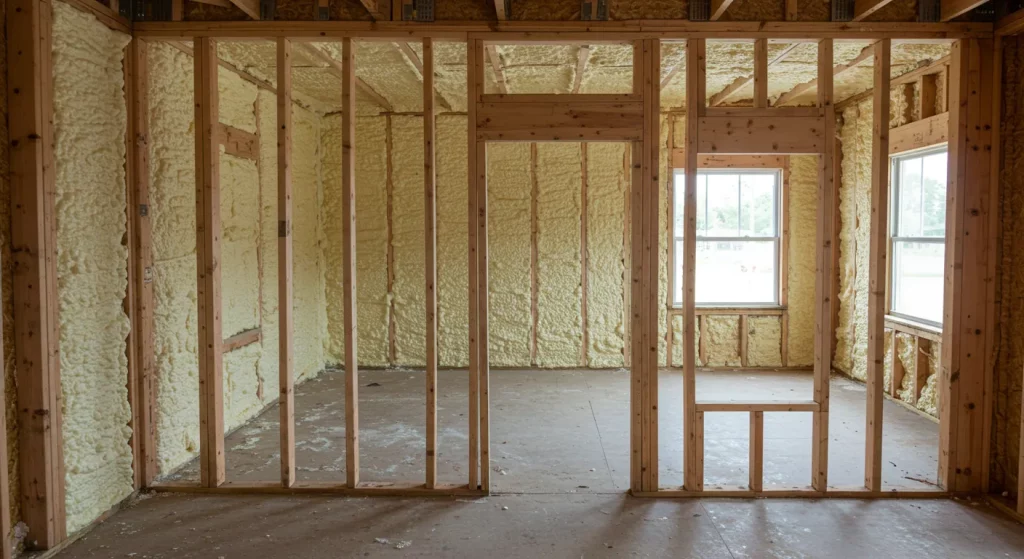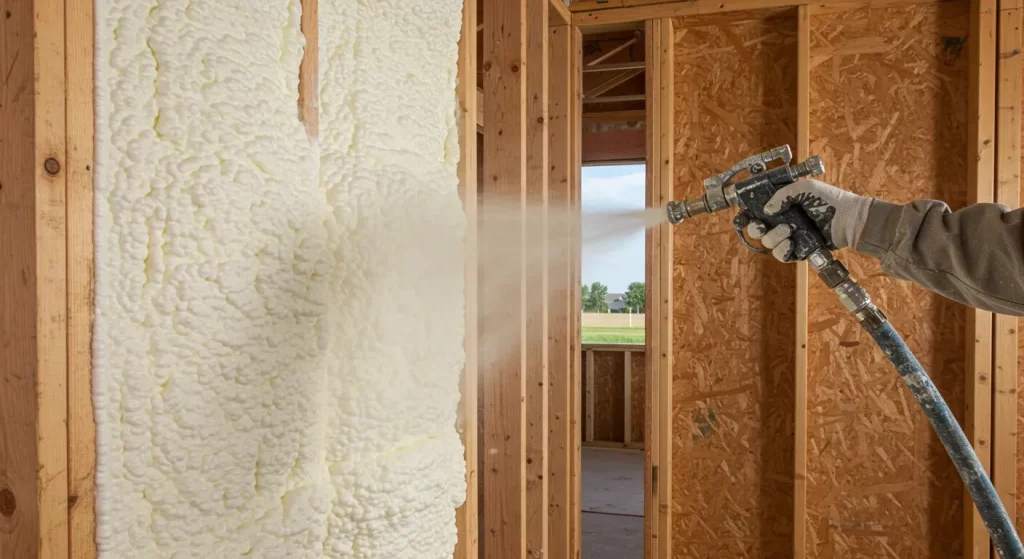When it comes to keeping your Raleigh home comfortable and energy-efficient, insulation plays a starring role. But not all insulation is created equal—and not all climates treat it the same way. With humid summers, mild winters, and plenty of rain, homeowners in Raleigh, NC often ask:
“How long will spray foam insulation really last here?”
The answer? Decades—if done right. But its longevity depends on the type of spray foam, quality of installation, and how well it’s suited to Raleigh’s unique climate. In this guide, we’ll break down exactly what you can expect, what affects spray foam’s lifespan, and how to make it last as long as possible.
How Long Does Spray Foam Insulation Typically Last?
Spray foam is known for its long-term performance, and in most cases, it lasts 20 to 50+ years depending on the type and installation conditions.
- Open-cell spray foam: ~20–30 years
- Closed-cell spray foam: 40–50+ years
Unlike fiberglass or cellulose, which settle or degrade over time, spray foam hardens into place and creates an airtight seal that holds its shape and performance for decades.
Bonus: Most high-quality spray foam products come with limited lifetime warranties, especially when installed by certified contractor like Raleigh Excel Spray Foam.
What Impacts Spray Foam Longevity in Raleigh’s Climate?
Raleigh’s humid subtropical climate is a blessing and a challenge. Here are the key factors that influence spray foam durability in this region:
- High Humidity: Constant exposure to moisture, especially in crawlspaces or basements, can impact foam over time—especially if ventilation is poor.
- Installation Quality: Bad mixing, overspray, or missed gaps can shorten lifespan dramatically.
- Ventilation Issues: A sealed attic without proper airflow may cause condensation, which damages insulation.
- UV Exposure: Foam exposed to sunlight (e.g., under unprotected roofing) can degrade unless sealed.
- Pest Intrusion: While spray foam doesn’t attract pests, gaps or poor sealing can allow critters to nest around it.
Open-Cell vs. Closed-Cell: Which Lasts Longer in Raleigh?
Both types are used in Raleigh homes, but they serve different purposes:
Open-Cell Spray Foam
- Lifespan: 20–30 years
- Best for: Interior walls, attics with low moisture
- Pros: Flexible, affordable, excellent soundproofing
- Cons: Less moisture-resistant, lower R-value
Closed-Cell Spray Foam
- Lifespan: 40–50+ years
- Best for: Crawlspaces, basements, exterior walls
- Pros: Moisture barrier, high strength, excellent air seal
- Cons: More rigid, higher cost
In Raleigh’s climate, closed-cell foam is typically recommended for areas prone to moisture or temperature extremes—like crawlspaces and attic rafters.
Warning Signs Your Spray Foam May Be Failing
Spray foam failures are rare but can happen, especially when installed poorly or in extreme moisture environments. Look for:
- Cracks or shrinkage in the foam surface
- Pulling away from framing or studs
- Unusual moisture or musty smells in insulated areas
- Unexplained energy bill increases
Early detection can prevent costly damage to your home’s structure or HVAC system.
Tips to Extend the Life of Spray Foam Insulation
Want to make sure your insulation performs for the long haul? Here’s how:
- Hire a certified local contractor with knowledge of Raleigh’s building codes and moisture trends
- Ensure proper ventilation in attics, crawlspaces, and basements
- Use the right type of foam for the area (open-cell vs closed-cell)
- Protect exposed areas from direct sunlight
- Schedule inspections every 5–10 years to catch issues early
- Avoid disturbing installed foam during home repairs or renovations
Pro Tip: Homeowners in Raleigh’s older neighborhoods often benefit from closed-cell foam in crawlspaces to combat seasonal moisture and mildew.
How Long-Term Insulation Benefits Raleigh Homeowners
Choosing a durable insulation option isn’t just about comfort—it’s an investment. Here’s why it matters:
- Lowers utility bills by reducing heat loss and HVAC strain
- Prevents moisture buildup, mold growth, and structural damage
- Increases resale value with energy-efficient upgrades
- Supports eco-friendly living by lowering energy consumption
- Pays off long-term, especially when installed correctly
Choosing the Right Contractor Matters
No matter how good the product is, installation makes or breaks the lifespan. At Raleigh Excel Spray Foam, we understand the local weather patterns, building designs, and insulation needs of North Carolina homeowners.
We use premium-grade spray foam, install with precision, and ensure your home is sealed against the elements—for decades to come.
Call us at (919) 301-9435 or email [email protected] for a free estimate or inspection.
Comparison Table
| Factor | Impact on Lifespan | How to Maximize |
|---|---|---|
| Installation Quality | Directly affects performance and lifespan | Use certified professionals |
| Humidity Control | Moisture weakens adhesion over time | Ensure proper ventilation |
| Foam Type | Closed-cell lasts longer than open-cell | Match foam type to application |
| UV Exposure | UV can degrade unprotected foam | Seal and protect exposed areas |
| Maintenance | Ignoring signs of failure shortens life | Schedule regular inspections |
FAQ Section
1. How long does spray foam insulation last in Raleigh homes?
Typically, 20 to 50+ years, depending on the foam type and installation quality.
2. Does Raleigh’s humidity reduce the lifespan of spray foam?
If properly installed and sealed, spray foam resists moisture well. However, poor ventilation or leaks can compromise it.
3. Is closed-cell foam better for Raleigh’s crawlspaces?
Yes. Closed-cell foam is moisture-resistant, making it ideal for basements and crawlspaces in humid climates.
4. What causes spray foam insulation to fail early?
The most common causes are improper installation, water damage, or UV exposure in unprotected areas.
5. Can spray foam insulation handle Raleigh’s summer heat?
Absolutely. Spray foam helps block radiant heat and keeps attics cooler in peak summer temperatures.
6. How often should spray foam be inspected?
We recommend a check every 5–10 years, especially in high-humidity areas or older homes.







